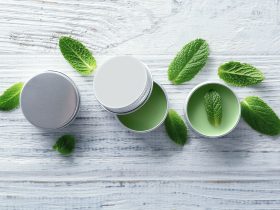As skin care trends evolve rapidly, it’s important to recognize and appreciate the timeless effectiveness of certain natural ingredients. These classics have stood the test of time, with decades of research supporting their efficacy.
- Oat Extracts for Sensitive Skin
Oat extracts, like colloidal oatmeal and oat oil, are highly regarded in the skincare industry, especially for those with sensitive skin. They have gained recognition as effective treatments for sensitive skin issues due to their ability to soothe and protect the skin.
Colloidal oatmeal, a finely ground oatmeal that can be used as a skincare ingredient, has even been approved by the FDA as an over-the-counter treatment for its skin-protectant properties. Its high lipid and antioxidant content makes it particularly beneficial for protecting the skin barrier and combating oxidative stress.
Colloidal oatmeal contains a variety of nutrients, including vitamin E, avenanthramides (active compounds with potent anti-inflammatory benefits found specifically in oats), and ferulic acid. Dermatologists often recommend colloidal oatmeal as a treatment for inflammatory skin conditions like eczema.
Oat oil, another oat extract, is known for its conditioning properties, providing deep hydration to the skin. Additionally, studies have shown that oat oil can improve ceramide production in the epidermis, which is essential for maintaining a healthy skin barrier. This further enhances its suitability for sensitive skin types.
Overall, oat extracts are considered a “gold standard” for sensitive skin, thanks to their ability to soothe, protect, and nourish the skin while effectively addressing inflammatory conditions.
- Aloe Vera for Dull Skin
Aloe vera is renowned not only for its ability to soothe sunburns but also for its myriad skincare and health benefits, thanks to its rich nutrient profile.
Research has identified over 751 different active compounds in aloe vera, including vitamins, minerals, sugars, enzymes, salicylic acids, and amino acids. This powerhouse ingredient is particularly valued for its hydrating properties, as it is a natural humectant that attracts moisture to the skin.
Studies have shown that aloe vera can increase the water content of the outermost skin layer (the stratum corneum), although it does not reduce transepidermal water loss, which indicates that it is more effective as a humectant than as an emollient or occlusive.
Hence, it is often recommended to use aloe vera in conjunction with thicker botanicals like shea butter, oat oil, and coconut oil.
In addition to its hydrating properties, aloe vera has also been lauded for its brightening capabilities. One study found that aloesin, a component of aloe vera, was effective in treating UV-induced and post-acne hyperpigmentation.
Another study discovered that the topical application of aloesin can directly inhibit hyperpigmented skin from producing excessive melanin, the pigment responsible for dark spots.
As a result, aloe vera is a beloved ingredient for addressing dullness and hyperpigmentation, making it a staple in many skincare routines.
Furthermore, aloe vera has been shown to possess anti-inflammatory properties, which can help soothe irritated and inflamed skin. It is also rich in antioxidants, which can help protect the skin from oxidative stress and free radical damage, thereby reducing the signs of aging.
Aloe vera has also been found to promote wound healing, making it a valuable ingredient for addressing acne scars and other blemishes. Additionally, its antimicrobial properties can help prevent acne and other skin infections.
- Jojoba Oil for Oily Skin
Jojoba oil has emerged as a highly sought-after skincare ingredient, largely due to its remarkable similarity to our skin’s natural oils in terms of chemical composition.
This similarity enables it to regulate sebum production, helping to reduce skin oiliness and maintain a balanced complexion. The oil is also rich in iodine, which aids in maintaining a healthy skin microbiome by counteracting bacterial overgrowth that can lead to breakouts.
In addition to its oil-controlling properties, jojoba oil is packed with beneficial nutrients like vitamin E, vitamin B complex, copper, and zinc. These nutrients contribute to the oil’s anti-inflammatory characteristics, making it an effective ingredient for soothing irritated or inflamed skin.
Overall, jojoba oil is a versatile skincare ingredient that can help manage excess oil production while nourishing the skin with essential nutrients and promoting a healthy complexion.
Its ability to balance oiliness and soothe inflammation makes it a valuable addition to any skincare routine.
- Green Tea for Inflamed and Aging Skin
Green tea, prized for its numerous health benefits, is a powerhouse when it comes to skincare. Its high concentration of polyphenol antioxidants, including the potent catechin epigallocatechin gallate (EGCG), makes it a go-to ingredient for those seeking natural remedies for inflammation and signs of aging.
Researchers have found that EGCG, specifically, has anti-inflammatory and antioxidant properties, making it an excellent candidate for skincare formulations.
When applied topically, polyphenols like EGCG have been shown to help repair damaged skin, offering protection against UV-induced photoaging. Studies indicate that they can also inhibit the breakdown of collagen and elastin, essential proteins that maintain the skin’s elasticity and firmness.
Additionally, EGCG can mitigate oxidative stress by neutralizing harmful free radicals, which can contribute to premature aging.
Furthermore, green tea’s anti-inflammatory properties make it effective for soothing irritated skin and calming conditions like acne and rosacea. Its ability to reduce inflammation can also minimize the appearance of redness and promote a more even skin tone.
- Coconut Oil for Dry Skin
Coconut oil is celebrated in natural skincare for several reasons. Firstly, it is abundant in fatty acids that provide nourishment and smoothness to the skin.
This quality makes it especially beneficial for individuals with dry skin, as coconut oil possesses outstanding moisturizing properties. Studies indicate that it can elevate moisture levels in the skin and exhibit an occlusive effect, effectively sealing in hydration. Furthermore, coconut oil has been shown to enhance the skin’s barrier function. These attributes make it a soothing option for individuals experiencing eczema flares or psoriasis.
Coconut oil’s natural properties contribute to its versatility in skincare, making it an appealing choice for those seeking a natural and effective solution for dry skin.
Moreover, coconut oil is a rich source of antioxidants, which help combat free radical damage and oxidative stress. This can further contribute to its ability to soothe and nourish dry, irritated skin. Additionally, the lauric acid found in coconut oil possesses antimicrobial properties, making it effective in fighting off acne-causing bacteria.
The unique composition of coconut oil, which includes a mix of medium-chain fatty acids, enables it to penetrate the skin more effectively than other oils, delivering moisture and nourishment deep into the skin layers. This makes coconut oil a particularly potent emollient, which not only hydrates the skin but also helps soften it and improve its overall texture.
Coconut oil’s ability to moisturize, protect, and nourish the skin, combined with its soothing and antimicrobial properties, makes it an excellent option for individuals dealing with dry skin issues, eczema, or psoriasis.
















Find Us on Socials